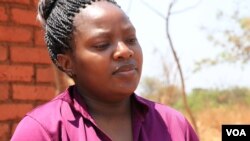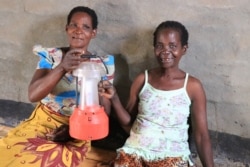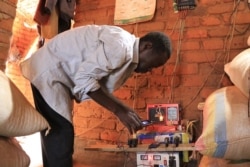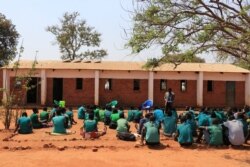A group of Malawi women is changing lives in villages that have long lived without power by installing and maintaining solar equipment in homes and schools. The women, known as the Solar Mamas, were trained in India as solar engineers, with sponsorship from charities. The solar power has allowed students in rural Malawi to study at night and for their families to earn more income.
The women may look like ordinary villagers, but a chat with them reveals they are trained solar engineers.
The Solar Mamas are helping to bridge the power gap in rural Malawi, a country where only 10% of the population is connected to the power grid.
Charity groups Barefoot and Voluntary Services Overseas, or VSO, sponsored the women’s six-month training in India.
Mtisunge Mngoli managed the Solar Mamas’ program at VSO.
“We trained illiterate women because we believed that education is not just in the classroom, Mngoli said. "And we wanted to tell people that even women can be solar engineers. So, we purposely selected older women that were about 45 years old and who did not go past standard (Grade) 5.”
The women have so far brought solar power to over 200 households in villages around Malawi’s capital, Lilongwe.
Aliness Nepiyasi is one of eight trained Solar Mamas.
She said the skills we learned from India are very beneficial to us, because once we install or repair the solar equipment, we are given money that helps us meet our daily needs.
The program helped some villagers get into the battery-charging trade and remove lengthy travel to charge mobile phones.
The Solar Mamas have also connected schools with solar power, allowing students — for the first time — to attend classes in the early mornings and evenings.
Ethel Phiri is a Grade 8 learner at Chatsala Primary School in Lilongwe.
Phiri said, “The coming of solar power here has helped me a lot. Because in the past, I was unable to study at night at home because my parents are poor and could not afford a lamp or a flashlight. But now, I can come here at night to study and work on assignments.”
The Solar Mamas have also trained Malawi’s youth in solar engineering so they can become the next generation of Solar Mamas and Papas.







